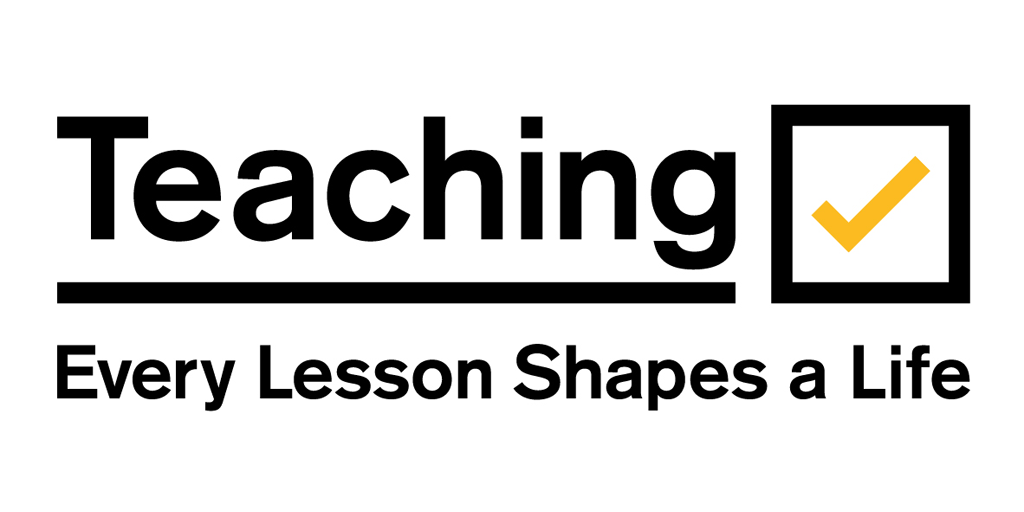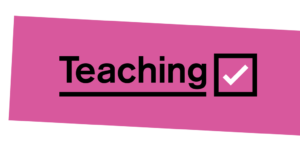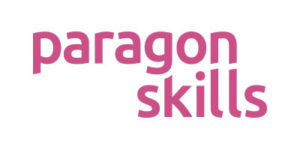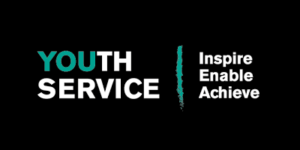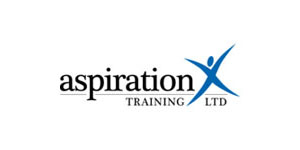Secondary School Teacher careers guide and job profile – Get Into Teaching
Love discovering new things and want to help others find the fun in learning? Like exploring academic subjects and want to specialise your expertise? If so, becoming a Secondary School Teacher could be the career for you.
Getting into Secondary School Teacher careers
How much money can you earn as a Secondary School Teacher?
These LMI Job Trends give you a sneak peek of how much you could earn starting out for this career, and how much your salary could grow with experience.
Average salary for teaching jobs
Recent labour market information says you can earn on average between £16,000 and £50,000 a year as a Secondary School Teacher in the UK.
Your starting salary can vary because of factors like level of experience, training, location or the size of the company. Your salary as a Secondary School Teacher will increase over time as you build skills, knowledge, and experience.
Childcare & Education Career FAQs & Insights

Is there something you’d like to know about childcare & education careers?
Skills you need to become a Secondary School Teacher
Useful skills to put in your CV:
- Creativity (this will help you design activities that are fun, inspirational and educational)
- Sensitivity and understanding (learning can be hard for some more than others, and you’ll need to build their self-belief)
- To be able to create a positive classroom environment
- Teamwork (you’ll need to work well with your students and other teachers)
- Patience and a cool, calm head to manage children and cope with any challenging behaviour
- Excellent communication skills (you’ll need to be able to build good relationships with children, parents and other teachers, and you may help with assemblies, clubs and events)
- IT skills (many schools now use software and digital tools for registers, accessing resources, and showing visual learning materials on a smart board)
- Self-management (you’ll need to keep track of your lessons and be responsible for all the students you teach)
- Leadership skills (you’ll be leader of the classroom and could take on senior responsibilities)
Top Skills-boosting Tip
Use every opportunity to practise teaching others, whatever age they are. Help younger family members with their homework and projects, help your friends with studying, or teach anyone you know something new you find interesting. People have different ways they learn best, and you’ll build your ability to communicate, present and adapt.
How Do You Get These Skills?
Vocational qualifications and work experience will help you build these skills over time.

Build Your Skills With the FREE Young Professional Programme
What Qualifications & Training Do You Need For Teaching Careers?
School, college and training
You’ll need to train for qualified teacher status (QTS) to be able to teach in most secondary schools in England. You can get this through teacher training. It’s important to remember that training routes and requirements may vary in Scotland, Wales and Northern Ireland.
Your CV can really shine if you have extra qualifications in childcare or youth work, and you will usually also need experience of working with children.
You will also need to pass enhanced background checks to prove you are safe to work with children and safeguard them.
If you have a degree or equivalent qualification, you can do postgraduate secondary teacher training. If you do not have a degree and are not studying for one, you can do undergraduate teacher training.
BTECs
As an alternative to A-Levels, you can do BTECs from the age of 16. There are a number of BTEC subjects you might want to consider if you are interested in becoming a secondary school teacher.
- Level 3 Award in Education and Training
- Level 4 Certificate in Education and Training
You’ll normally need 2 or more GCSEs at grades 9-3 (A*-D) or equivalent for a Level 2 or 3 course. If your qualifications are lower than this, you’ll most likely start on a Level 1 course.
Any BTECs related to the subject you want to teach could also be useful.
A-Levels
A Levels are academic qualifications that come after GCSEs. A Levels can be an ideal stepping stone to an advanced apprenticeship, a degree, a job, or going straight into a freelance career.
You’ll normally need GCSEs at grade 4 (C) or above in English and Maths. You can do any subjects that are relevant to what you want to teach.
2 to 3 relevant A levels, or equivalent, are usually required to complete a degree.
T-Levels
T-Levels are a choice for learners after GCSEs alongside apprenticeships and A-levels.
T Levels, an alternative to A-Levels, are qualifications in vocational, technical and hands-on subjects that you can choose to do after GCSEs instead of traditional academic qualifications.
They include a mixture of classroom-based learning and industry placements where you can put your new skills into practice in real-world scenarios.
A T-Level in Education & Childcare Assisting Teaching Level 3 could be a good choice for a prospective secondary school teacher.
University degrees and graduates
Undergraduate degree
You can do an undergraduate degree that leads to qualified teacher status (QTS), for example:
- Bachelor of Education (BEd)
- Bachelor of Arts (BA) with QTS
- Bachelor of Science (BSc) with QTS
You do not always need to have a degree in the subject you’d like to teach. Your teacher training organisation will decide whether you have the required skills and knowledge to teach the subject.
You can sometimes do a subject knowledge enhancement course to improve your understanding of the subject you want to teach.
UCAS has more information on degree courses and entry requirements.
If you already have a bachelor’s degree without qualified teacher status, you can complete a postgraduate certificate in education (PGCE). This can be done at university or through a training programme based in a school.
Postgraduate certificate
Many teacher training courses also offer you a postgraduate qualification such as a PGCE, but you do not need one to teach.
A PGDE in England is very similar to a PGCE, the difference being the number of academic credits you are awarded at the end of your course.
PGCE courses can contain up to 60 credits at Master’s degree level, and PGDE courses can contain up to 120. This usually means that doing a PGDE will include more assignments. More teacher training providers offer a PGCE than a PGDE.
Becoming a qualified teacher
You need qualified teacher status (QTS) to teach in most primary, secondary and special schools in England. You can get QTS through undergraduate or postgraduate teacher training, including a teaching degree apprenticeship (see below).
Apprenticeships
An apprenticeship is a scheme where you train while earning a starting salary. You’ll have a paid job with an employer that includes structured training and learning. This training leads to an official qualification that’s recognised by employers as an industry standard.
You can study an apprenticeship in:
- Teaching assistant (Level 3) and work your way to teacher position
- Learning and Skills Teacher (Level 5)
- Teacher (Level 6)
Anyone over 16 can study for an apprenticeship. You will normally need at least 5 GCSEs at grades 4-9 (A*-C) to study for an apprenticeship, including English and Maths.
Career Progression
Where your career could take you…
- become a special educational needs teacher, further education lecturer or move into pastoral care
- become a specialist leader of education and support teachers in other schools
- work freelance as a private tutor
- move up to be a curriculum leader, head of year, deputy head or headteacher
- work for an exam board, local education authority or work in a gallery or museum as an education officer
Get Into Teaching
Your favourite teacher started exactly where you are now. You are more of a teacher than you think!
What Work Experience Do You Need For Teaching Jobs?
Work Experience Tips
It can help you decide if this is the right career for you if you have previously done work experience in a teaching environment. Work experience in an education environment can also help you build useful skills.
Examples of relevant work experience include:
- Work shadowing (even if it’s just for a day)
- Work placements in a company
- Work experience placements on a college or university course
Your application for this role is more likely to be successful if you already have experience of working with children and young people. As well as gaining work experience through childminding and similar roles, you could explore summer jobs where you might work with younger/older children, such as crewing at a holiday camp.
You could start as a teaching assistant and do a part time degree. You could then move onto a postgraduate teaching course to qualify as a teacher.
Volunteering Tips
Volunteering is a fantastic way to gain experience of working with younger and older, as so many volunteering opportunities can involve youth community work.
When you volunteer with children you’ll need to get a DBS check to prove you can safeguard them appropriately.
You’ll find it helpful to get some experience of working with young people, though this is not essential.
You could volunteer at a school, help at an after school club or work on a holiday scheme. Check with local schools in your area for opportunities.
What Does A Secondary School Teacher Do?
A full time teacher will teach during school hours which are usually around 9am – 3pm (but can vary across schools).
However, you may work outside of these hours to complete teacher training, admin, planning, and marking work.
Teachers also usually only work during term time, but some of the school holidays will be used in the same way to make sure you’re prepared for the next term.
Example daily job responsibilities:
- prepare teaching materials, set up the classroom and organise displays
- plan and teach lessons and work with small groups of students
- mark work and talk to parents and carers about their children’s progress
- manage the work of teaching assistants
- follow safeguarding procedures and work with careers advisers, counsellors, education psychologists and social workers
- organise trips, after school clubs or exam revision classes
How To Find Secondary School Teacher Jobs: Next Steps
To find jobs for young people in this role, search on jobs boards for early career roles and opportunities with these words in the title:
- Teaching apprentice
- Secondary School Teacher
- Education jobs
You can also use keywords for the subject you want to teach e.g. ‘English teacher’.
You can take a look at our database of local opportunities to see if there are any relevant jobs, work placements, or careers events and workshops to help you get started. Create Your Future!
Schools can be owned by private organisations or by local government, so many local councils recruit for teachers for schools in the county themselves.
You can use the government website to find education and teaching opportunities near you.
The Department for Education also provide information on the many routes you could take and hold events across the UK so that you can talk to those who work in education or training providers. It’s a great opportunity to explore the ways you can get a job in teaching.
Get Into Teaching Careers With Youth-Friendly Employers
These employers and organisations are here to help. They care about your potential and desire to learn, not just your qualifications and experience. They may be able to offer traineeships, apprenticeships, graduate schemes, first jobs, careers advice, wellbeing support and much more.
Childcare & Education Career Tips & Opportunities
Childcare & Education Career Guides
View job descriptions with average UK salary, useful qualifications and a variety of routes into this career.
See All Our Youth-Friendly Employers

























YES! I Want More Free Careers Help...
So what are you waiting for? Grab your future.


